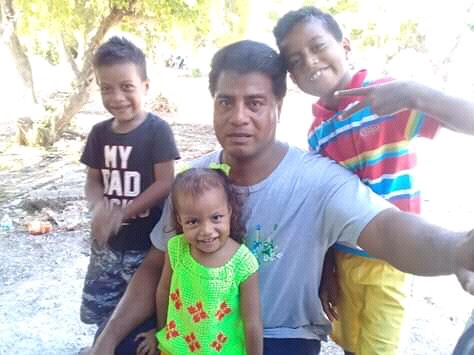The Parties to the Nauru Agreement ( PNA) has described them as the “eyes of the sea,” who help provide critical data to ensure the sustainability of tuna stocks.
But while fisheries observers are considered a valuable part of fisheries management, there are continued questions over their safety once they are deployed at sea and what happens to the families they leave behind.
Kiribati fisheries observer Eritara Aati Kaierua reportedly died in his cabin aboard the Taiwanese -flagged vessel Win Far No. 636 on March 3 or 4, 2020, according to a report from UK-based non-government organisation, Human Rights At Sea.
His wife, Tekarara said on March 5, 2020, she was called to the office of the Kiribati Fisheries Ministry where she was told that Eritara died.
“How did my husband die? Why did he die? He was very fit when they did his medical check before his deployment, what really happened to him,” Tekarara said.
The Director, she said , vowed to “investigate properly,” her husband’s fate.
Yet over a year later, a proper investigation has not been done.
According to the Human Rights At Sea report, Kiribati Police Commissioner Ioeru Tokantetaake confirmed that a pathologist from Fiji had conducted an autopsy on March 25, 2020.
The autopsy found “severe intra-cranial haemorrhage (sic) and traumatic brain injuries due to severe traumatic head injuries and blunt force head trauma” were the cause of death.”
The Kiribati police opened a murder investigation, but while the vessel was impounded, the owners of the Win Far No. 636 in Civil Case 43 of 2020 applied to the High Court of Kiribati to have the vessel released from police detention. No formal charges have ever been filed in relation to the case, but in June last year the Kiribati Supreme Court ruled that the vessel continue to be detained until a complete investigation was undertaken.
For more login to your account or subscribe today.
